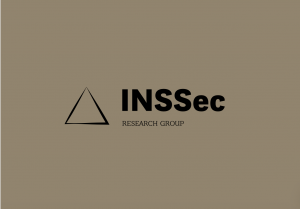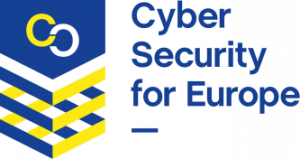CSR MCS 2021
2021 IEEE CSR Workshop on Maritime Cyber Security (MCS)
July 26, 2021
Critical infrastructure in the maritime sector sustains essential services and the movement of vital goods. Maritime activities are so crucial that their unavailability or delays in their supply chain may adversely affect the well-being of a country. Critical infrastructures are vital assets for public safety, economic welfare, and the national security. Vulnerabilities of critical infrastructures have increased with the widespread use of information technologies. As Critical National Infrastructures are becoming more vulnerable to cyberattacks, their protection becomes a significant issue for any organization as well as nation. The risks to continued operations from failing to upgrade aging infrastructure or not meeting mandated regulatory regimes are considered higher given the demonstrable impact of such circumstances.
Due to the rapid increase of sophisticated cyber threats targeting the maritime sector with significant destructive effects, the cyber security of critical infrastructures has become an agenda item for academics, practitioners, and policy makers. A holistic view which covers technical, policy, human, and behavioral aspects is essential to handle cyber security of critical infrastructures effectively. Moreover, the ability to attribute crimes to criminals is a vital element of avoiding impunity in cyberspace.
In this workshop, both research and practical aspects of cyber security considerations in critical infrastructures in the maritime sector are of interest. Aligned with the interdisciplinary nature of cyber security, authors from academia, government, and industry are welcome to contribute.
Topics of Interest
Prospective authors are encouraged to submit previously unpublished contributions from a broad range of topics, which include but are not limited to the following:
› Cyber security of complex and distributed critical infrastructures;
› Situational Awareness towards Maritime Cyber Incidents;
› Prevention, resilience and preparedness;
› Maritime security management methodologies (MSMM);
› Safety-security interactions;
› Protection of Ports’ Information and Telecommunication (PIT) systems;
› Maritime security policies, standards and regulations;
› Vulnerability and risk assessment methodologies for maritime systems;
› Detection and response mechanisms for maritime systems;
› Maritime security and safety services;
Important Dates
Paper submission deadline: April 19 May 10, 2021 AoE (firm)
Authors’ notification: May 3 May 31, 2021 AoE
Camera-ready submission: May 10 June 7, 2021 AoE
Early registration deadline: June 14, 2021 AoE
Workshop date: July 26, 2021
Submission Guidelines
The workshop’s proceedings will be published by IEEE and will be included in IEEE Xplore. The guidelines for authors, manuscript preparation guidelines, and policies of the IEEE CSR conference are applicable to MCS 2021 workshop. Please visit the authors’ instructions page for more details. When submitting your manuscript via the conference management system, please make sure that the workshop’s track 2T8 MCS is selected in the Topic Areas drop down list.
Workshop Committees
Workshop chairs
Leandros Maglaras, De Montfort University (UK)
Christos Douligeris, University of Piraeus (GR)
Ioanna Kantzavelou, University of West of Attica (GR)
Vasileios Vlachos, University of Thessaly (GR)
Helge Janicke, Cyber Security Cooperative Research Centre of Austraila (AU)
Publicity chair
Kyriaki Chantzi, University of West of Attica (GR)
Contact us
Program committee
Aliyu Aliyu, De Montfort University (UK)
Brunno Bender, Ventura Associate (GR)
Nestoras Chouliaras, University of West of Attica (GR)
Tiago Cruz, University of Coimbra (PT)
Mohamed Amine Ferrag, Guelma University (DZ)
Rania Garofalaki, University of Piraeus (GR)
Vasileios Germanos, De Montfort University (UK)
Vasileios Gkioulos, Norwegian University of Science and Technology (NO)
Thanos Kakarountas, University of Thessaly (GR)
Dimitrios Kosmanos, University of Thessaly (GR)
Panagiotis Kotzanikolaou, University of Piraeus (GR)
Sotiris Moschoyiannis, University of Surrey (UK)
Manos Panaousis, University of Greenwich (UK)
Vasileios Papaspyrou, University of Thessaly (GR)
Spyridon Papastergiou, University of Piraeus (GR)
Maria Papathanasaki, University of Thessaly (GR)
Despina Polemi, University of Piraeus (GR)
Stefan Schauer, Austrian Institute of Technology (AT)
Corinna Schmitt, Universität der Bundeswehr München (DE)
Christos Tselikis, University of Piraeus (GR)
Katerina Vardalaki, Research Institute of European and American Studies (GR)
Ismini Vasileiou, De Montfort University (UK)
Ioannis Vourgidis, De Montfort University (UK)
Supported by
Program Information
A backwards compatible approach to authenticate automatic identification system messages
M. Struck and J. Stoppe
Advancing the state of maritime cybersecurity guidelines to improve the resilience of the maritime transportation system
L. Drazovich, L. Brew, and S. Wetzel
Impact assessment of anomaly propagation in a naval water distribution cyber-physical system
N. Pelissero, P. Merino Laso, and J. Puentes
Quantum cryptography in maritime telecommunications
M. Papathanasaki, P. Fountas, L. Maglaras, C. Douligeris, and M. A. Ferrag
The impact of COVID-19 on the security and resilience of the maritime transportation system
L. Brew, L. Drazovich, and S. Wetzel
See also the conference’s overall list of accepted papers.
Coming soon.
See also the conference’s overall program.





